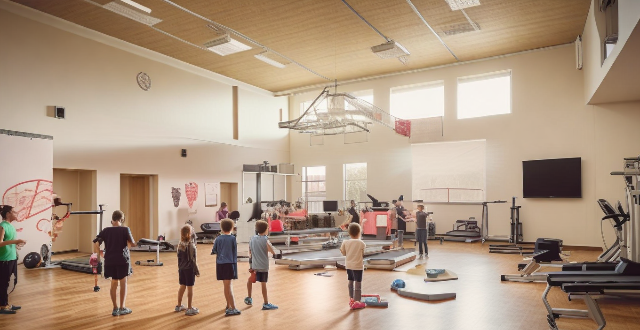Balancing needs in sports event organization is important for the success and enjoyment of all involved, including athletes, coaches, officials, and spectators. Strategies for meeting these needs include providing adequate facilities and nutrition for athletes, suitable accommodation and training facilities for coaches, clear guidelines and safe working conditions for officials, and comfortable seating, food options, cleanliness, and entertainment for spectators. By considering each group's unique requirements and implementing appropriate strategies, sports event organizers can create a successful and enjoyable experience for everyone involved.

Balancing Needs in Sports Event Organization
Introduction
Balancing the needs of athletes, coaches, officials, and spectators is a crucial aspect of sports event organization. Each group has unique requirements that must be considered to ensure a successful and enjoyable experience for everyone involved. This article will explore some strategies that sports event organizers can use to achieve this balance.
Strategies for Balancing Needs
Athletes' Needs
Athletes are the primary focus of any sports event, and their needs should be given top priority. Here are some ways to meet their requirements:
- Provide Adequate Facilities: Ensure that there are enough changing rooms, showers, and rest areas for athletes. These facilities should be clean, well-maintained, and easily accessible.
- Ensure Proper Training and Competition Venues: The venues where athletes train and compete should be safe, well-lit, and equipped with necessary equipment. They should also be large enough to accommodate all participants comfortably.
- Offer Sufficient Nutrition and Hydration: Athletes need access to healthy food and water before, during, and after competitions. Make sure there are sufficient refreshment stations throughout the venue.
- Provide Medical Support: Trained medical staff should be available on-site to handle any injuries or emergencies that may occur during the event.
Coaches' Needs
Coaches play a vital role in guiding athletes, so their needs must also be addressed. Here are some ways to support them:
- Offer Suitable Accommodation: Coaches often travel with their teams, so it's essential to provide comfortable lodging options near the competition venue.
- Provide Access to Training Facilities: Coaches need access to training facilities to prepare their teams effectively. Ensure that these facilities are available and meet their specific requirements.
- Arrange Meeting Spaces: Coaches may need private spaces to hold team meetings or discuss strategy with athletes. Provide suitable areas for these activities.
- Facilitate Communication: Coaches need to stay connected with their teams and other coaches. Offer reliable Wi-Fi services or other communication tools as needed.
Officials' Needs
Officials ensure fair play and enforce rules, so their needs should not be overlooked. Here are some ways to support them:
- Provide Clear Guidelines: Ensure that officials have access to clear guidelines and rulebooks related to the sport being played. This will help them make informed decisions during the event.
- Offer Training Opportunities: Providing training opportunities for officials can help improve their skills and knowledge. Consider organizing workshops or seminars before the event.
- Provide Appropriate Attire: Officials should be easily identifiable by athletes, coaches, and spectators. Provide uniforms or badges that clearly indicate their roles.
- Ensure Safe Working Conditions: Officials work closely with athletes and may face potential risks. Ensure that they have proper safety equipment, such as whistles, flags, or protective gear, depending on the sport.
Spectators' Needs
Spectators add excitement and energy to sports events, but their needs must also be considered. Here are some ways to cater to them:
- Provide Comfortable Seating: Ensure that there is ample seating for spectators, including options for different age groups and abilities. Seats should be comfortable and offer good views of the playing field.
- Offer Food and Beverage Options: Spectators may spend several hours at the event, so providing food and beverage options is essential. Consider offering a variety of choices to cater to different tastes and dietary restrictions.
- Maintain Cleanliness and Sanitation: Keep restrooms clean and stocked with supplies like soap and paper towels. Also, ensure that trash bins are easily accessible and regularly emptied.
- Provide Entertainment Between Events: To keep spectators engaged between competitions, consider offering entertainment such as music, dance performances, or interactive games.
Conclusion
Balancing the needs of athletes, coaches, officials, and spectators is crucial for the success of any sports event. By considering each group's unique requirements and implementing appropriate strategies, sports event organizers can create an enjoyable experience for everyone involved.